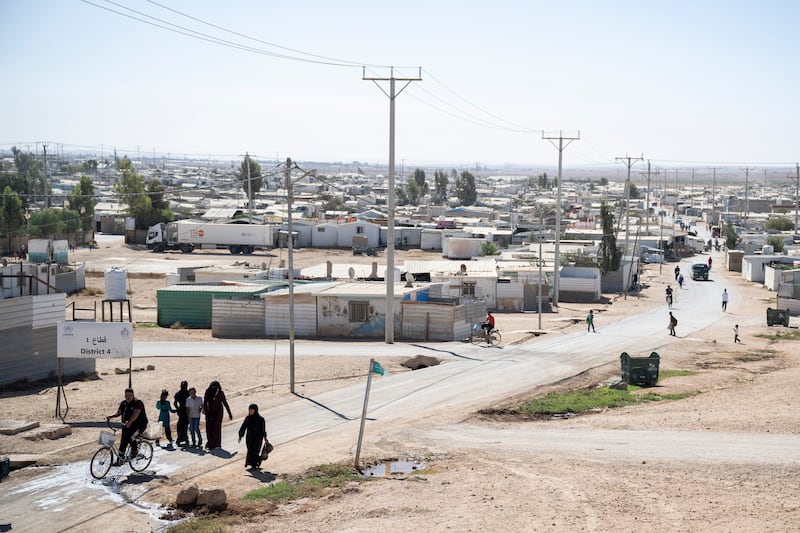A court has upheld Swedish curbs on asylum as it rejected a Syrian doctor’s bid to have his wife and five children join him in Europe.
Abdelnaser Dabo sued on human rights grounds after his family were denied a move to Sweden from a refugee camp in Jordan.
He told the European Court of Human Rights it would be “impossible for most people” to meet minimum income rules to cover his large family.
But judges said Sweden’s laws were “not unreasonable” and that there was no obvious reason he could not be reunited with his family in Jordan.
Europe’s top human rights guardian had intervened in the case on Dr Dabo’s behalf, raising concerns about strict asylum laws in Europe.
Dr Dabo, who is in his early 60s, was among hundreds of thousands of Syrians granted asylum in Europe in 2015 and 2016.
Many countries tightened rules after the Syrian refugee crisis and are now doing so again as an overstretched asylum system fuels discontent.

Despite human rights concerns, the court accepts immigration control “serves the general interests of the well-being of a country” and there is no “general obligation” to reunite families in the country of their choice, said a ruling published on Thursday.
“A refugee will most likely stay permanently in the host country, which will have taken and will take various measures to secure successful integration,” the seven-judge panel said.
“The court does not consider it unreasonable that … in order to be granted family reunification, a refugee sponsor should be required to demonstrate that he or she has a sufficient independent and stable income.”
Minimum income
Judges heard Dr Dabo would have needed to earn about 45,000 Swedish kronor ($4,300) per month to meet the Swedish rules, which he claimed “very few employees would be able to earn”.
Although his medical training was recognised as meeting Swedish standards, there were delays getting a licence and Dr Dabo was living on benefits at the time of the application, the court was told.
Dr Dabo cited the family’s poor living conditions in Jordan and the needs of young children as he accused Sweden of a “rigid and inflexible” handling of his case.
In her intervention, the Council of Europe’s human rights commissioner Dunja Mijatovic said separating families could have “very serious effects” including severe distress and sleeping or eating disorders.
She said refugees arriving in Sweden would be at an “enormous disadvantage” in finding work and housing and that some people might never meet the requirements.
However, the court rejected Dr Dabo’s case, saying he had not done “all that could reasonably be expected” to earn sufficient income. Swedish authorities also said his apartment was too small.
Judges said the income rules would have been waived if Dr Dabo’s family had applied more promptly, rejecting his claim that they signalled their intent in good time at the Swedish embassy in Jordan.

Dr Dabo’s wife and children had never been to Sweden and had no ties to the country other than their relationship with him, the court said in a 32-page ruling.
In addition, Dr Dabo had not seen them since 2013, and took a second wife. It did not appear the children, then aged between seven and 14, had “any particular dependence” on their father, according to the court.
Dr Dabo had left Syria for Jordan in 2013, subsequently travelling through Turkey and Greece before arriving in Sweden in December 2014 and later being granted asylum.
His first wife and five children left Syria for Jordan several months after Dr Dabo and still live there under the protection of the UN’s refugee agency UNHCR.
Lawyers for the Swedish government said Dr Dabo had “not pointed to any insurmountable obstacles to reunion with them in Jordan” after leaving them in 2013.
Judges accepted that argument, saying Dr Dabo could stay in contact by phone and that there seemed to be no reason “why he would be excluded from visiting them there or in other countries”. The family could lodge a new application at any time, they said.







